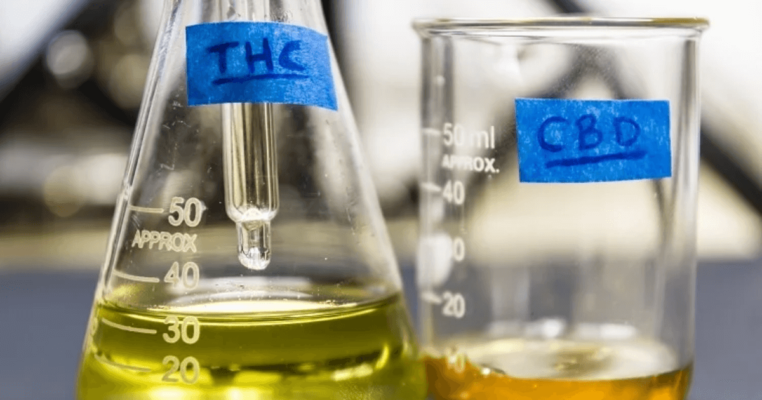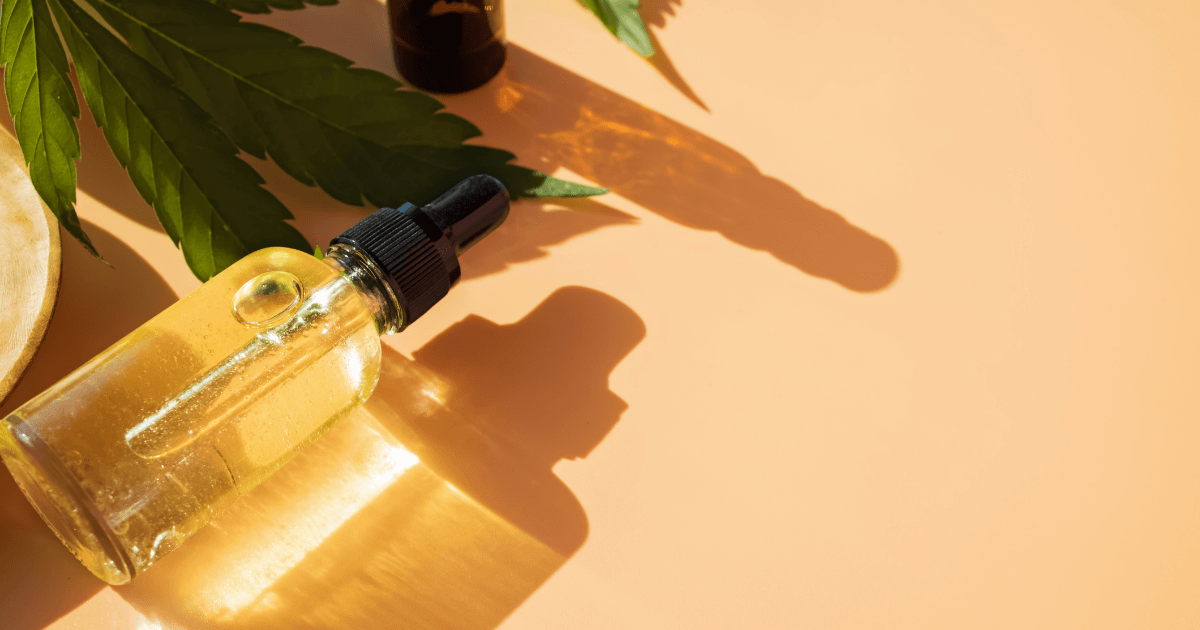CBD
CBD: What it is and How it Works
We’ve all heard of CBD, and it’s been making waves as a natural treatment in recent years.
You might be wondering what CBD is and what it does. CBD, or cannabidiol, is one of the many cannabinoids found in cannabis plants.
CBD and THC are the two most well-known cannabinoids, and for good reason – they are responsible for the majority of the medicinal and therapeutic effects of cannabis.
However, they both serve very different purposes, with CBD being used for medicinal treatments, whereas THC is a purely recreational form of cannabis.
In this article, we go through everything you need to know about what CBD is and how it works so that you have a better understanding before you delve into the world of CBD and try it out for yourself.
What is CBD?
CBD is one of the many cannabinoids found in cannabis plants. CBD and THC are the two most well-known cannabinoids, and for an excellent reason – they are responsible for the majority of the medicinal and therapeutic effects of cannabis.
CBD is non-psychoactive, meaning it will not get you high, and it has a wide range of potential health benefits. THC, on the other hand, is psychoactive, meaning it will get you high.
But if it can’t get you high, what can it do?
Furthermore, CBD is most commonly extracted from hemp plants, which contain high levels of CBD and low levels of THC. CBD can also be extracted from marijuana plants, but these plants contain high levels of THC and low levels of CBD.
Additionally, CBD is often used to treat a range of medical conditions, with further studies being done to expand the scope of treatment available.
CBD is available in a variety of forms, including oils, tinctures, capsules, and edibles. It can also be used topically in the form of creams, salves, and lotions. A great example are products from KeoniCBD.com and UNOCBD.com.
CBD is generally considered safe, but it can cause some side effects, including tiredness, diarrhea, and changes in appetite.
What Does CBD Stand For?
CBD stands for cannabidiol. Cannabidiol is one of over 100 cannabinoids found in the marijuana plant. CBD is non-psychoactive, meaning it will not get you high. CBD has a wide range of potential medical applications.

What are the Benefits of CBD?
CBD has been shown to have a wide range of potential medical applications. CBD is known to relieve pain, inflammation, stress, and seizures. CBD is also being studied for its potential to treat other medical conditions, with great advancements being made every day.
It can be used to help the following conditions (to name a few):
- Acne
- Anxiety disorders
- Chronic pain
- Depression
- Drug use and withdrawal
- Epilepsy
- Glaucoma
- High blood pressure
- Inflammation
- Insomnia
- Muscle spasms
- Poor appetite
- Skin conditions like eczema and psoriasis
How Does CBD Work?
CBD works by interacting with the body’s endocannabinoid system. The endocannabinoid system is a system of receptors that are located throughout the body. CBD binds to these receptors and helps to regulate various bodily functions, such as pain, inflammation, and stress.
This is why it is commonly used to treat chronic pain, and Healthline has stated that sufferers of health conditions such as multiple sclerosis (MS) have found relief in its application.
Similarly, those who suffer from inflammatory and neuropathic pain have found similar relief in the use of CBD products.
While the cannabis plant falls under the controlled substances act, those who suffer from anxiety disorders and post-traumatic stress disorder have also found that hemp-derived CBD products have been able to help.
Is CBD Safe?
CBD is generally considered safe, but it can cause some side effects, each of which we go into a little later in this guide.
According to experts, CBD can also interact with some medications, so it is important to talk to your doctor before using CBD if you are taking anything else so that you don’t unintentionally end up cancelling your meds or having a negative reaction.
If a prescription drug reacts poorly with cannabidiol CBD, you can likely work something out with your doctor so that any safety concerns are addressed and you can find a new way around it.
CBD vs THC: What is the Difference Between CBD and THC?
CBD and THC are the two most well-known cannabinoids. CBD is non-psychoactive, meaning it will not get you high. THC, on the other hand, is psychoactive, meaning it will get you high. CBD has a wide range of potential medical applications, while THC is mainly used for recreation.
CBD is a cannabinoid found in marijuana that does not contain the psychoactive ingredient THC. CBD has a wide range of potential medical applications. CBD works by interacting with the body’s endocannabinoid system.
What Does This Mean?
The endocannabinoid system is a system of receptors that are located throughout the body. CBD binds to these receptors and helps to regulate various bodily functions. CBD and THC are the two most well-known cannabinoids.
CBG vs CBD: What is the Difference Between CBD and CBG?
CBG is a cannabinoid found in marijuana that does not contain the psychoactive ingredient THC. CBD has a wide range of potential medical applications. CBD works by interacting with the body’s endocannabinoid system.
The endocannabinoid system is a system of receptors that are located throughout the body. CBD binds to these receptors and helps to regulate various bodily functions.
CBD and CBG are two of the most well-known cannabinoids.
What Makes Them So Different?
CBD is non-psychoactive, meaning it will not get you high. CBG is also non-psychoactive. CBD has a wide range of potential medical applications, while CBG is mainly used for recreation.
CBG is often associated with enhancing the receptors that are associated with pleasure, regulating appetite, sleep, and pain relief which is why it is such a popular choice for recreational use.
Unfortunately, there has not been as much medical research into CBG as CBD.

What are the Potential Side Effects of CBD?
CBD is generally considered safe, but studies have shown it can cause some side effects, including:
- decreased appetite
- diarrhea
- feeling sick
- weakness
- a behavioural or mood change
- dizziness
- fatigue
- hallucinations
How Can CBD Be Taken?
CBD can be taken in a variety of different ways, including:
- inhaling CBD as smoke or vapour
- as CBD oil, which can be added to food or drinks or taken with a dropper
- in CBD capsules and gummies
- as a CBD topical, which is applied to the skin
CBD oil is the most popular method of CBD ingestion. CBD oil can be added to food or drinks or taken with a dropper to alleviate the symptoms of some health issues.
CBD gummies are candies that contain CBD. They are one of the most popular types of CBD products.
CBD capsules are another popular method, as they are easy to take and provide a set dose of CBD.
CBD topicals are applied to the skin and are a popular choice for those seeking localized relief.
To Conclude
CBD is a cannabinoid found in marijuana that does not contain the psychoactive ingredient THC. CBD has a wide range of potential medical applications, and it works by interacting with the body’s endocannabinoid system.
CBD is generally considered safe, but it can cause some side effects, so it is important to talk to your doctor before using CBD. CBD is non-psychoactive, meaning it will not get you high.
THC, on the other hand, is psychoactive, meaning it will get you high. CBD has a wide range of potential medical applications, while THC is mainly used for recreation.
Learn more about CBD at Bulk Weed.
Sources:
Bauer, B. A. (M.D.). (2022). What are the benefits of CBD – and is it safe to use? Mayo Clinic. Available at: https://www.mayoclinic.org/healthy-lifestyle/consumer-health/expert-answers/is-cbd-safe-and-effective/faq-20446700
Coehlo, Steph. (2021, May 25). Can CBD Help with Multiple Sclerosis? Healthline. Available at: https://www.healthline.com/health/best-cbd-for-multiple-sclerosis
Brown JD, Winterstein AG. Potential Adverse Drug Events and Drug-Drug Interactions with Medical and Consumer Cannabidiol (CBD) Use. J Clin Med. 2019 Jul 8;8(7):989. doi: 10.3390/jcm8070989. PMID: 31288397; PMCID: PMC6678684. Available at: https://www.ncbi.nlm.nih.gov/pmc/articles/PMC6678684/
Keoni CBD. (2023, April 1). Buy Keoni CBD Products Online. Available at: https://www.keonicbd.com/
Boyaji, S. (2020, September 23). CBD for chronic pain: The science doesn’t match the marketing. Harvard Health Publishing. Available at: https://www.health.harvard.edu/blog/cbd-for-chronic-pain-the-science-doesnt-match-the-marketing-2020092321003
UNO CBD. (2023, April 1). Buy UNO CBD Products Online. Available at: https://unocbd.com/
Harvard health. (2021, January 14). 5 action steps for quitting an addiction. Available at:
https://www.health.harvard.edu/diseases-and-conditions/five-action-steps-for-quitting-an-addiction
Harvard health. (2021, March 30). Simple tips to fight inflammation. Available at: https://www.health.harvard.edu/diseases-and-conditions/simple-tips-to-fight-inflammation









